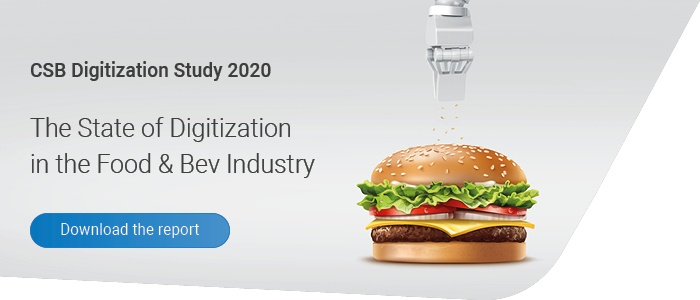The number of food recalls continues to rise. The good news: Traceability systems protect consumers, but also producers and retailers.
Recalls of food are not always necessary, but almost always quite expensive. And their number is increasing, as the food newspaper Lebensmittelzeitung reports in its issue of 16 February 2018:
"91 public recalls were registered last year by the platform Lebensmittelwarnung.de, which is operated by the Federal Office for Consumer Protection and Food Safety (BVL). That's almost two a week." It also happens more and more often internationally that products have to be taken off the shelf. There are many reasons for this:
For example, stricter laws, increasingly complex production and supply chains, but also the increase in allergies and food intolerances.
Food industry in second place behind automotive industry
Consumers should be pleased that not all recalled products are classified as hazardous to health. Often enough, the goods are simply "just" incorrectly labeled, ingredients are not properly declared or the wrong price is written on the label.
For the manufacturers, however, it is usually quite expensive: According to industrial insurer Allianz Global Corporate & Specialty, the average loss amount in the food and beverage industry is 1.3 million euros per loss.
This puts the food industry in second place, behind the automotive industry (2.12 million euros), but ahead of the IT and electronics industry (1.1 million euros). Retail came fourth with 645,000 euros per claim.
IT-controlled systems are becoming even more important
The figures show that good recall management and IT-controlled traceability systems are becoming even more important in the food industry than they already are. Firstly, no producer, whether organic or conventional, is immune to contamination, impurities or incorrectly labeled goods. And secondly, experts such as Christof Bentele from Allianz Global Corporate & Specialty forecast that there will be even more cases in the future where the recalls are not legally obligatory but are nevertheless necessary for image reasons.
Either way, it's true: If you want to limit the damage, you need detailed information in order to organize recalls quickly and specifically. Without IT: unthinkable. The affected batches can only be identified and removed from the supply chain by comprehensive, software-supported documentation of the processes along the value chain. This documentation is also the only way to counter unjustified accusations and liability claims. Overall, traceability systems thus help to minimize economic risks. This also makes them interesting for corporate insurance companies: As a rule, they reward the introduction of a traceability system with significantly more favorable annual conditions.
To find out how food producers install a suitable system, read our blog article on the topic.


